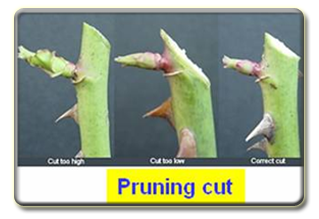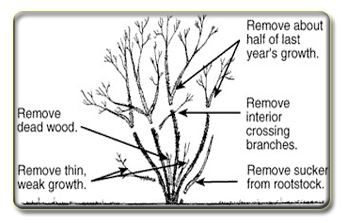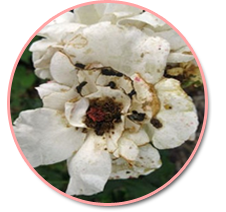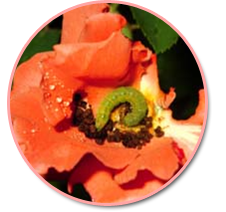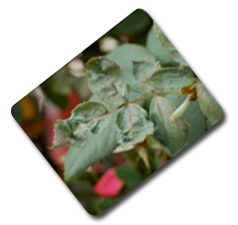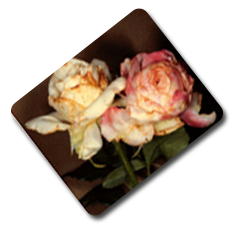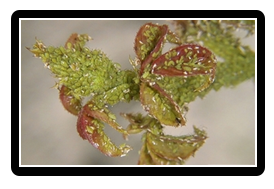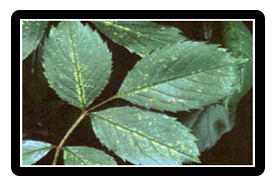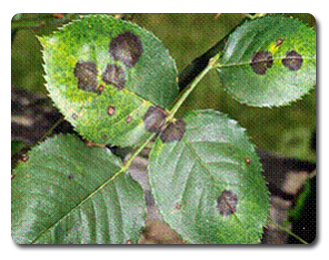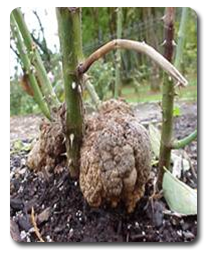ROSE (Rosa sp)
Rosaceae
Varieties
Edward Rose and Andra Red Rose and Button rose are found mainly under cultivation.
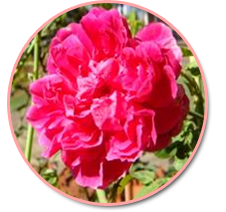 |
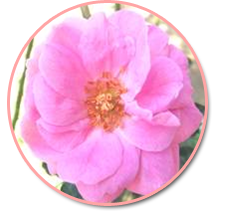 |
| Andra Red Rose |
Edward Rose |
Soil and climate
Well-drained sandy loam with pH of 6-7 is suitable.Bright sunshine for minimum of 6 hours is essential for the cultivation of roses. Day temperature of 260 C and night temperature of 150 C are ideal. It can be grown in the plains of Tamil Nadu where the optimum climate is available. It can be well grown in the plains of Tamil Nadu.
Propagation and planting
Cuttings with 2-3 buds are dipped in IBA or IAA @ 500 ppm. Pits of 45 cm x 45 cm x 45 cm are dug at 2.0 x 1.0 m spacing and 10 kg FYM is added to each pit before planting.
Irrigation
Irrigation is done once in 2 days until plants establish and once a week thereafter. Avoid salt water for irrigation purpose.
Manuring
After pruning in October and again in July the plants are manured with FYM 10 kg and 6:12:12 g of NPK per plant.
Micronutrients
Foliar application of 0.2% micronutrient mixture containing 20 g MnSO4 + 15 g MgSO4 + 10 g FeSO4 + 5 g B (2g of the mixture is dissolved in one litre of water) can produce bright coloured flowers.
Biofertilizers
Soil application of 2 kg each of Azospirillum and Phosphobacteria per ha at the time of planting. It is to be mixed with 100kg of FYM and applied in pits.
Aftercultivation
Pruning
The best time of pruning is the period when the activity of rose plant is least and the plant is dormant to near dormant stage. Pruning time will depend on climatic conditions of the particular region. The vigorous past season shoots are cut back to half the length. All the weak, diseased, criss-crossing and unproductive shoots are removed. The cut ends should be protected with Bordeaux or Fytolan paste + Carbaryl 50 WP.
Cut back the vigorous past season shoots to half the length during October to December. All the weak, diseased, criss-crossing and unproductive shoots are removed. The cut ends should be protected with Bordeaux paste or Copper Oxychloride + Carbaryl 50 WP.
Growth regulators
Spray 250ppm of GA3 (30 days after pruning) during early vegetative stage to increase the flower production.
Plant protection
Pests
Rose chaffer beetle
Hand pick Cetonid beetles and destroy during day time. Spray Quinalphos 25 EC @ 2 ml/lit. Setup light trap to attract Holotrichia and Anomala spp to have check on the pest.
White grub :
Set up light to attract Holotrichia and Anomala spp.
Spray phosalone 35 EC @ 2 ml/lit.
Red scale
Rub off the scales with cotton soaked in kerosene or diesel. Cut and burn the affected branches. Spray Malathion 50 EC 2 ml/lit at the time of pruning and again during March – April or Apply Carbofuran 3G 5 g/plant or spray Fish oil rosin soap 25 g/lit or Quinalphos 25 EC 2 ml/lit to control the pest.
Mealy bug
Mealy bugs can be controlled by spraying Methyl parathion 2 ml/lit.
Flower caterpillar
Helicoverpa armigera
Spray Ha NPV 1.5 x 102; PIB/ha to control the borer incidence.
Spodoptera litura
Spray Sl NPV 1.5 x 102 PIB/ha to control the borer incidence.
Bud worm
Bud worms can be controlled by spraying at fortnightly interval during flowering.
Thrips, aphids and leaf hoppers
Thrips, aphids and leaf hoppers can be controlled by spraying Methyl demeton 25 EC 2 ml/lit of water or Carbofuran 3G 5 g/plant or spray Neem oil 3 % or Phosalone 35 EC 2 ml/lit.
Diseases
Black spot disease (Diplocarpon rosae)
It can be controlled by spraying Carbendazim 1 g/lit twice at fortnightly intervals.
Spray Carbendazim @ 1 g/l twice at fortnightly intervals or Azoxystrobin @ 1g/l
Powdery mildew
Spray Carbendazim 1 g/lit or Wettable sulphur at 2 g/lit for controlling powdery mildew.
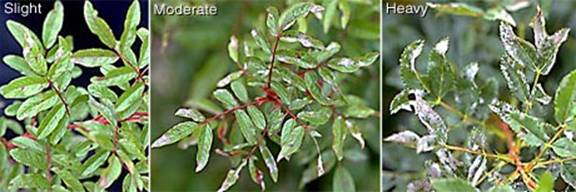
Powdery mildew
Botrytis Blight
Cut and destroy all infected blossoms as soon as they droop or die. Spray carbendazim @ 1 g or Chlorothalonil 2 g or Mancozeb 2 g or Azoxystrobin 0.5 g or Thiophanate methyl 0.5 g/ litre of water.

Botrytis Blight
Crown gall
1. Protect plants from injury on stems during cultivation.
2. Maintain vigor with fertilization and watering.
3. Remove and destroy badly infected plants and do not replant in that area for at least five years.
Die-back
Spray Chlorothionil 2 g/lit or Mancozeb 2 g/lit
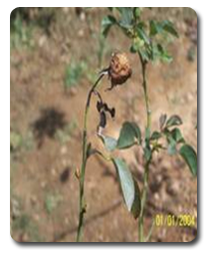 |
| Die-back |
Crop duration
The plants will start flowering in the first year and will give economic yield from the second year onwards.
Season of flowering and harvesting
Flowering will commence from 45 days after pruning. Fully opened flowers are picked early in the morning.
Yield
About 10 lakh flowers/ha/year can be obtained.
Market information
| Crop growing districts |
Krishnagiri,Madurai,Dindigul |
| Major markets in Tamil Nadu |
Dindigul, Madurai, Chennai |
| Preferred varieties and hybrids |
Edward rose, Andra red rose and Button rose |
Source
1. http://a6.vox.com/6a00d4141450ed685e00f48cdba46e0002-500pi |



